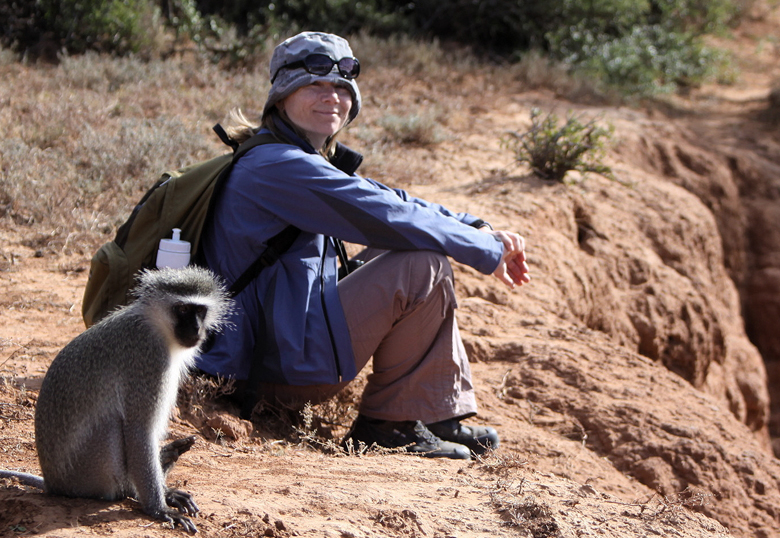Seeing ourselves in other animals is a very human thing to do. On the one hand, this is entirely appropriate — we are animals ourselves after all. On the other hand, it can give rise to a misleading view of other species if we insist on comparing them to humans, especially as we often consider ourselves to be above the other animals: our large relative brain size, and spectacular ability to invent and use technology, seems to place us at a remove from the rest of the Animal Kingdom. How best, then, to understand what it means to be human, and appreciate our place in Nature?

On Thursday, September 26, University of Lethbridge psychology professor, Dr. Louise Barrett, will present Supercharged Apes and Supersized Minds: How to Think Like an Animal. This is the first regular talk of the 2019-20 season for the Faculty of Arts & Science’s PUBlic Professor Series. The free event runs from 7 to 9 p.m. at the Sandman Signature Lethbridge Lodge and is open to the public.
Barrett has studied the behaviour of wild African primates for the past 25 years, along with studies of human behaviour and ecology. In this talk, she offers her perspective on how humans and other species differ, and how to reconcile our animal and cultural natures. Her suggestion is that we need to pay as much attention to bodies as well as brains, and the manner that humans and other animals extend their biological capacities by exploiting the structure of the environment. What makes humans clever may, paradoxically perhaps, be found outside our heads, rather than in them.
Barrett was born and educated in London, England. She holds a BSc in ecology and a PhD in anthropology from University College London, and is currently a Canada Research Chair in Cognition, Evolution and Behaviour at the U of L. In 2016, Barrett was inducted as a Fellow of the Royal Society of Canada. In collaboration with Peter Henzi, Barrett ran the De Hoop Baboon Project in South Africa for 12 years, and currently co-directs the Samara Vervet Monkey Project in South Africa (10 years and counting).
Her research centres on the issue of how ecology shapes patterns of social evolution, from a “radical enactivist” perspective, and includes work on thermal physiology and responses to climate change, early life experience and behavioural plasticity, social network influences on behaviour, and collective behaviour.
She is also interested in how culture and biology intersect to influence human behaviour and runs several projects on human behavioural ecology, including field research in Samoa and the Canadian North. Her most recent book is Beyond the Brain: How Body and Environment Shape Animal and Human Minds (Princeton University Press).
